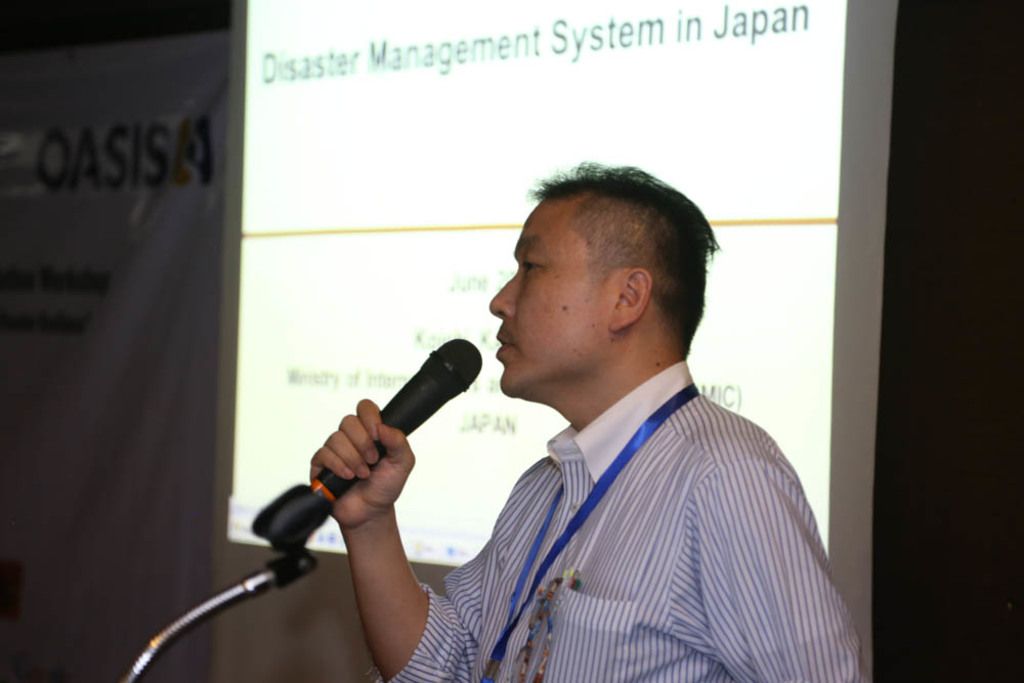Emergency Preparedness in Japan: Essential Steps to Follow
Navigating a foreign land, especially for first-timers, naturally sparks a bit of apprehension. However, fear not about safety in Japan, as it's a different story altogether. Tokyo and Osaka, for instance, have been declared the world's safest cities by the Economist Intelligence Unit[2]. Japan boasts one of the lowest murder rates in the globe[1], making it an exceptionally safe destination for travelers.
Yet, being casual about safety in Japan isn't wise either. It's essential to have a basic understanding of the environment to ensure your protection. Despite the low crime rate, natural disasters, medical emergencies, and run-ins with law enforcement can still occur. This write-up offers a crash course in handling the unlikely event of an emergency.
First off, let's discuss the most common natural disasters in Japan, as it lies on the Pacific Ring of Fire.
Natural Disasters
1. Typhoon Season
If your travel schedule falls between May and October, you might find yourself amidst Japan's typhoon season. August and September witness peak typhoon activity. While most typhoons are mild and won't significantly impact your journey, severe typhoons can result in widespread damage and travel disruptions. To avoid being caught unaware, keep an eye on weather forecasts before your trip, and postpone your adventure if things look grim[3].
2. Earthquakes
Japan constantly battles Mother Nature, with more than a thousand earthquakes reported annually[3]. Though most are minor, it's vital to know the recommended earthquake safety procedures[4].
3. Tsunami
Major disasters, like the 1995 Kobe earthquake and the 2011 tsunami, are fortunately rare occurrences. But it's smart to stay prepared no matter where you are. Carry a first-aid kit, learn a few essential phrases, and have emergency numbers on hand. If visiting the Fukushima area, consider taking a tour to understand the tragic event's impact—all while ensuring your safety[3].
Crime in Japan
Crime is less of a concern in Japan than in many other nations. However, con artists roam the streets, seeking to take advantage of oblivious tourists. Be wary of strangers claiming to be religious figures or charity workers, and never accept a ride or tour without agreeing on a price upfront.
Another scam to watch out for is price gouging. Ordering drinks without knowing how much you'll be charged can lead to hefty bills[3].
Before you leave for Japan, make your itinerary known to friends and family, along with your hotel's contact information. Memorize a few friends' numbers in case of emergencies. Learn your hotel's policies, especially if you'll be staying at a ryokan or guest house[3].
For nighttime safety, stay with your group, avoid getting into strangers' cars, avoid wandering into unknown establishments, don't engage in fights, and be cautious of offers of sexual activities or drugs.
The Yakuza, Japan's rendition of organized crime, especially thrives in metropolitan areas. While they usually steer clear of foreigners, avoiding conflicts and not engaging in fights proves beneficial. If you encounter any unfamiliar scenarios, leave immediately and seek help[3].
Emergency Contacts and Resources
Police in Japan/When to Visit the Koban
If in need of police assistance, ask your hotel or around-the-clock establishment to call the police for you. In minor cases like lost wallets, you can visit a koban, or police box. Located mainly in busy areas, these kobans are manned by officers who may not speak fluent English, but they provide enough help[3].
When to Contact Your Embassy
Emergency situations may necessitate contacting your embassy, such as missing persons, criminal allegations, and severe medical emergencies. Embassy contact information can usually be found on their respective websites or via hotel/local law enforcement assistance[3].
Travel Safe and Enjoy Japan
Japan's friendly culture and minimal crime rate should not provide a pass to neglect common sense. Stay vigilant, informed, and prepared, and you'll be able to explore bustling cities like Tokyo, or immerse yourself in historical tours of Kyoto, worry-free[2].
Follow us on Instagram, Facebook, and Twitter for travel inspiration[4]. Safe travels!
[1] https://www.numbeo.com/crime/rankings.jsp[2] https://en.wikipedia.org/wiki/List_of_safest_cities_in_the_world[3] https://www.worldnomads.com/travel-safety/europe/japan/safety-in-japan[4] https://www.japan-guide.com/e/e2024.html
- During Japan's typhoon season from May to October, particularly in August and September, it's advised to keep an eye on weather forecasts and postpone travel if conditions seem grim to avoid being caught in severe typhoons.
- While Earthquakes are common in Japan, it's crucial to know the appropriate earthquake safety procedures to ensure one's safety.
- In the unlikely event of a tsunami, it's important to carry a first-aid kit, learn essential phrases, and have emergency numbers on hand. If visiting the Fukushima area, consider taking a tour to understand the impact of the tragic event while ensuring safety.
- Though crime is minimal in Japan, tourists should be wary of con artists, never accept rides or tours without agreeing on a price upfront, and avoid getting into conflicts with the Yakuza, Japan's organized crime group.




